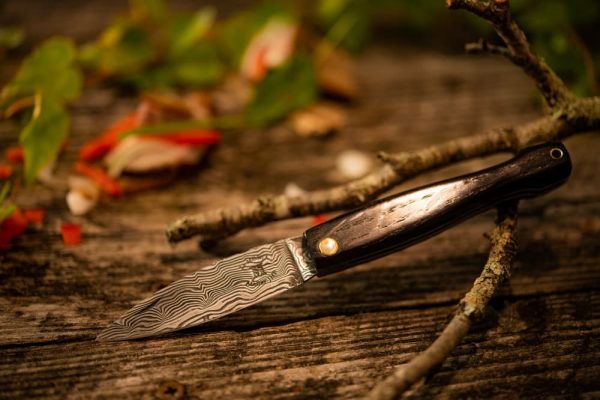Knife Laws in Michigan: What You Need to Know About Your Rights? Knives hold a special place in our daily lives, whether for cooking, outdoor activities, or collecting. However, the possession and use of knives are governed by specific laws that vary from state to state. In Michigan, the knife laws are particularly important to know to avoid trouble. To better understand the restrictions on certain types of knives and the rules concerning concealed carry, let’s dive into the details of knife laws in Michigan.
What are the Knife Laws in Michigan?
The knife laws in Michigan are defined under a number of statutes and sections within the state penal code. Major contributing statutes include Section 750.226 and Section 750.227.
Under Section 750.226, it is illegal to carry a dagger, dirk, stiletto, or any knife with more than 3 inches on the blade if intended for use against another person lawfully.
Violating this section is a felony punishable by up to 5 years in prison or a fine of up to $2,500.
Section 750.227 prohibits carrying a concealed dagger, dirk, stiletto, double-edged non-folding stabbing instrument, or any other dangerous weapon on one’s person or in a vehicle, except in a person’s dwelling house, place of business, or on other land possessed by the person.
What is the Legal Knife Length in Michigan?
Michigan law does not place a specific limitation on the pocket knife length but applies by context and intent.
Folding pocket knives having blades under 3 inches can be carried concealed.
Fixed blade knives or any knife having a blade size more than 3 inches would be considered as “dangerous weapon” for which concealed carry would be illegal if carried with the intent to harm.
Pocket Knives and Concealed Carry Laws
Michigan knife laws require that only folding knives with blades less than 3 inches may be lawfully carried concealed without presumptions of unlawful intent.
Driving with a knife is a concealed carry, except in the event that the knife is out of reach – for example, in the trunk.
Which of the following types of knives are banned in Michigan?
Michigan statute regulates the possession and carrying of particularly dangerous knives of specific kinds.
There are three types of these knives :
- Automatic knives (switchblades), and gravity knives can legally be possessed and carried in the state of Michigan, though their carry concealed is restricted when it is used as a dangerous weapon.
- Double edged knives like a dagger and stiletto, cannot be carried concealed in any circumstances.
- Knives like machetes and survival knives also come within such prohibitions if the one carrying them cannot prove the blades are used for legal purposes such as hunting or camping.
Michigan knife laws exemptions and exclusion
Exemptions can be found for peace officers, military personnel, as well as those conducting knife use for legal business affairs. Knives in question used for legal purposes including hunting and fishing cannot fall within the prohibitions either.
Additionally, knives to do a job are allowed to be carried during work.
State laws aside, many Michigan cities and towns have local ordinances related to knives.
Local ordinances might be more stringent than state law.
For instance:
- Detroit has stricter knife laws that also include possible blade length limits as well as open carry restrictions in certain areas.
- Ann Arbor could have a prohibition of walking in schools or other established public places with knives.
- Grand Rapids may regulate the sale and display of knives
Other Court Cases that influenced Michigan’s knife law include
- Michigan v. Mata where it was found that Kershaw Speedsafe did not qualify as a mechanical knife in the laws of Michigan. The charges are, therefore dismissed.
- People v. Vaines: The defendant was convicted for carrying a concealed jackknife, a case that reached the state supreme court and impacted knife laws in Michigan.
Some practical tips for knife owners?
To avoid legal trouble, it’s necessary to know and respect Michigan’s knife laws.
Here are some practical tips:
- Know the legal length of knives: Generally, knives whose blade is more than 3 inches in length are restricted. Your knife should respect this length.
- Carry knives properly: If you must transport a knife, it should always be visible, not hidden if you’re in a vehicle. A non-foldable or double-edged knife should always be in a proper sheath and be in the car trunk in order not to be suspected of carrying in a concealed manner.
- Proper use: Use your knives only for their intended purpose, such as hunting or cooking. Avoid carrying knives in public without good reason, as this could be interpreted as an intention to use the weapon illegally.
- Understand local restrictions: Some cities like Detroit and Lansing may have specific laws that are stricter than state laws. Ask about local regulations regarding knives.
Conclusion
Compliance with Michigan knife laws can avoid any legal issues. To know and understand Michigan knife laws means you can own knives legally and use them whenever necessary.
We hope the information in this guide is useful to you, and we welcome you to stay tuned on current regulations.


 by
by 




